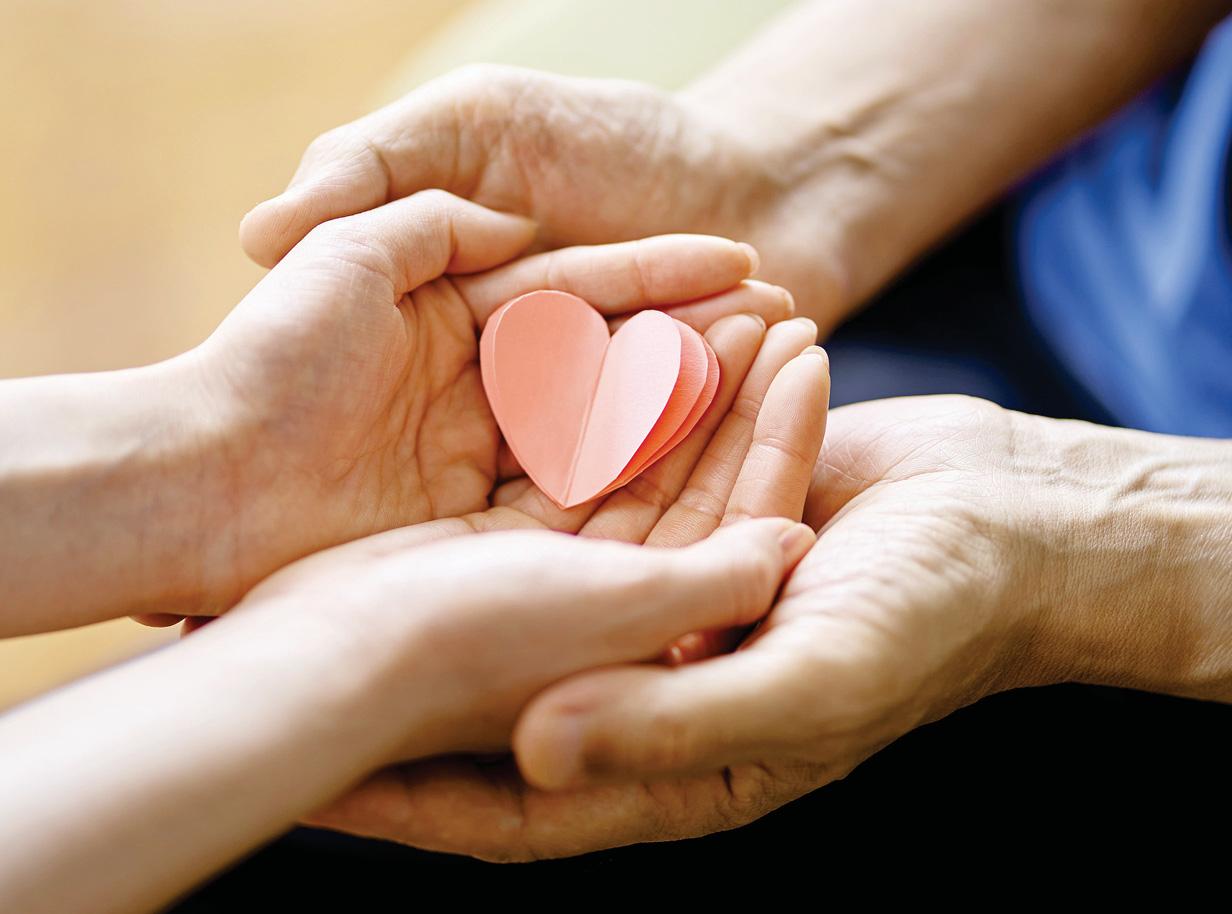BALANCING EDUCATION
Pooja, 19, who lives in Birmingham, has been caring for her mother, who has rheumatoid arthritis (a progressive disease), since she was just 12 years old.
“I help to prepare food and carry out day-to-day tasks around the house, such as cleaning and laundry,” explains Pooja. “I also help whenever Mum needs a hand with showering or brushing her hair. Since getting my car, I’ve helped with shopping and taking Mum to appointments, out to visit friends or just to get out of the house.”
Looking back at her journey as a young carer, Pooja says, “I started caring for Mum around 2016, when I was 12, but it was officially picked up by my high school in early 2019, when I was 14.
“It’s just me and Mum at home. My brother and his wife come and help if I’m at university and Mum needs support.”
Pooja adds, “Caring has made a lot of things difficult, as I’ve missed out on certain opportunities, due to needing to be there for my mum.
“Balancing caring and my education has also been difficult, and still is sometimes, as I barely have enough time to rest and study, and I have to turn down going out or spending time with friends.”
STRUGGLING TO SOCIALISE
New research by Action For Children and Carers Trust has found that eight out of ten young carers report feeling lonely over the summer holidays.
Research also shows that 23% of young carers in the UK said their caring role has stopped them from making friends.
Additionally, more than two in five young carers say they frequently struggle to study for tests or exams because of the demands of their caring situation.
This has impacted people like Eden, 21, who lives in Belfast. Eden cares for her younger brother, who has autism. He has no awareness of danger and can’t be left alone, so someone always has to be with him.
“Caring for my brother has had a big impact on my education – even more so now I’m an adult,” says Eden. “It means I haven’t moved out to go to university or got my own place to live, as I want to be here for my brother until he leaves school. In terms of my future career, I know I’ll probably have to work reduced hours to make sure I’m able to support my brother.
image [https://cdn.magzter.com/1583506613/1741065663/articles/46nRw4f1z1741072526869/9441946669.jpg]
“I also have a health condition myself, so it can be hard to juggle this and caring.”
“I support my brother emotionally as he finds school challenging and sometimes has to take days off,” adds Eden. “I support him physically as well, making sure he eats and helping him to make choices. I assist with his daily routine by helping him get ready and making sure he gets out to school on time when my parents aren’t here.
“I’ve been caring for my brother for as long as I can remember, but since leaving school and becoming an adult, I’ve taken on a more active role in supporting his needs. My parents are the main carers, but when they have work or other commitments, I help to support them.”
Eden’s friendships have been impacted by caring for her sibling. “I often have to cancel plans at the last minute if I need to stay at home with my brother, and it can be really difficult to explain to my friends what being a young adult carer looks like,” she says.
“It can be quite isolating, but joining groups such as the Carers Trust Youth Advisory Panel and NI Regional Young Carers has h...


